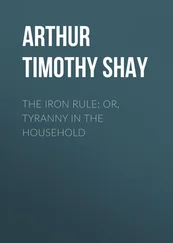Timothy Arthur - The Good Time Coming
Здесь есть возможность читать онлайн «Timothy Arthur - The Good Time Coming» — ознакомительный отрывок электронной книги совершенно бесплатно, а после прочтения отрывка купить полную версию. В некоторых случаях можно слушать аудио, скачать через торрент в формате fb2 и присутствует краткое содержание. Жанр: foreign_sf, literature_19, foreign_antique, foreign_prose, на английском языке. Описание произведения, (предисловие) а так же отзывы посетителей доступны на портале библиотеки ЛибКат.
- Название:The Good Time Coming
- Автор:
- Жанр:
- Год:неизвестен
- ISBN:нет данных
- Рейтинг книги:4 / 5. Голосов: 1
-
Избранное:Добавить в избранное
- Отзывы:
-
Ваша оценка:
- 80
- 1
- 2
- 3
- 4
- 5
The Good Time Coming: краткое содержание, описание и аннотация
Предлагаем к чтению аннотацию, описание, краткое содержание или предисловие (зависит от того, что написал сам автор книги «The Good Time Coming»). Если вы не нашли необходимую информацию о книге — напишите в комментариях, мы постараемся отыскать её.
The Good Time Coming — читать онлайн ознакомительный отрывок
Ниже представлен текст книги, разбитый по страницам. Система сохранения места последней прочитанной страницы, позволяет с удобством читать онлайн бесплатно книгу «The Good Time Coming», без необходимости каждый раз заново искать на чём Вы остановились. Поставьте закладку, и сможете в любой момент перейти на страницу, на которой закончили чтение.
Интервал:
Закладка:
Keep the letter! Its contents were already in the heart of Fanny!
"Where's Edward? What's the matter?" queried Aunt Grace, coming up at this moment, and seeing that all colour had left the cheeks of Mrs. Markland.
Scarcely reflecting on what she did, the latter handed her husband's letter in silence to her sister-in-law, and tottered, rather than walked, to a garden chair near at hand.
"Well, now, here is pretty business, upon my word!" exclaimed Aunt Grace, warmly. "Sending a letter to our Fanny! Who ever heard of such assurance! Oh! I knew that some trouble would come of his visit here. I felt it the moment I set my eyes on him. Keep the letter from Fanny? Of course you will; and when you have a talk with Edward about it, just let me be there; I want my say."
"It is too late," murmured the unhappy mother, in a low, sad voice.
"Too late! How? What do you mean, Agnes?"
"Fanny has the letter already."
"What!" There was a sharp, thrusting rebuke in the voice of Aunt Grace, that seemed like a sword in the heart of Mrs. Markland.
"She stood by me when I opened her father's letter, enclosing the one for her. I did not dream from whence it came, and handed it to her without a thought."
"Agnes! Agnes! What have you done?" exclaimed Aunt Grace, in a troubled voice.
"Nothing for which I need reproach myself," said Mrs. Markland, now grown calmer. "Had the discretion been left with me, I should not have given Fanny the letter until Edward returned. But it passed to her hands through no will of mine. With the Great Controller of events it must now be left."
"Oh dear! Don't talk about the Controller of events in a case of this kind. Wise people control such things through the wisdom given them. I always think of Jupiter and the wagoner, when I hear any one going on this way."
Aunt Grace was excited. She usually was when she thought earnestly. But her warmth of word and manner rarely disturbed Mrs. Markland, who knew her thoroughly, and valued her for her good qualities and strong attachment to the family. No answer was made, and Aunt Grace added, in a slightly changed voice,—
"I don't know that you are so much to blame, Agnes, seeing that Fanny saw the letter, and that you were ignorant of its contents. But Edward might have known that something like this would happen. Why didn't he put the letter into his pocket, and keep it until he came home? He seems to have lost his common sense. And then he must go off into that rigmarole about Mr. Lyon, and try to make him out a saint, as if to encourage you to give his letter to Fanny. I've no patience with him! Mr. Lyon, indeed! If he doesn't have a heart-scald of him before he's done with him, I'm no prophet. Important business for Mr. Lyon! Why didn't Mr. Lyon attend to his own business when he was in New York? Oh! I can see through it all, as clear as daylight. He's got his own ends to gain through Edward, who is blind and weak enough to be led by him."
"Hasty in judgment as ever," said Mrs. Markland, with a subdued, resigned manner, as she arose and commenced moving toward the house, her sister-in-law walking by her side,—"and quick to decide upon character. But neither men nor women are to be read at a glance."
"So much the more reason for holding strangers at arms' length," returned Aunt Grace.
But Mrs. Markland felt in no mood for argument on so fruitless a subject. On entering the house, she passed to her own private apartment, there to commune with herself alone.
CHAPTER VII
ONLY a few minutes had Mrs. Markland been in her room, when the door opened quietly, and Fanny's light foot-fall was in her ears. She did not look up; but her heart beat with a quicker motion, and her breath was half-suspended.
"Mother!"
She lifted her bowed head, and met the soft, clear eyes of her daughter looking calmly down into her own.
"Fanny, dear!" she said, in half-surprise, as she placed an arm around her, and drew her closely to her side.
An open letter was in Fanny's hand, and she held it toward her mother. There was a warmer hue upon her face, as she said,—
"It is from Mr. Lyon."
"Shall I read it?" inquired Mrs. Markland.
"I have brought it for you to read," was the daughter's answer.
The letter was brief:
"To MISS FANNY MARKLAND:
"As I am now writing to your father, I must fulfil a half promise, made during my sojourn at Woodbine Lodge, to write to you also. Pleasant days were those to me, and they will ever make a green spot in my memory. What a little paradise enshrines you! Art, hand in hand with Nature, have made a world of beauty for you to dwell in. Yet, all is but a type of moral beauty—and its true enjoyment is only for those whose souls are attuned to deeper harmonies.
"Since leaving Woodbine Lodge, my thoughts have acquired a double current. They run backward as well as forward. The true hospitality of your manly-hearted father; the kind welcome to a stranger, given so cordially by your gentle, good mother; and your own graceful courtesy, toward one in whom you had no personal interest, charmed—nay, touched me with a sense of gratitude. To forget all this would be to change my nature. Nor can I shut out the image of Aunt Grace, so reserved but lady-like in her deportment; yet close in observation and quick to read character. I fear I did not make a good impression on her—but she may know me better one of these days. Make to her my very sincere regards.
"And now, what more shall I say? A first letter to a young lady is usually a thing of shreds and patches, made up of sentences that might come in almost any other connection; and mine is no exception to the rule. I do not ask an answer; yet I will say, that I know nothing that would give me more pleasure than such a favour from your hand.
"Remember me in all kindness and esteem to your excellent parents.
"Sincerely yours,
LEE LYON."
The deep breath taken by Mrs. Markland was one of relief. And yet, there was something in the letter that left her mind in uncertainty as to the real intentions of Mr. Lyon. Regret that he should have written at all mingled with certain pleasing emotions awakened by the graceful compliments of their late guest.
"It's a beautiful letter, isn't it, mother?"
"Yes, love," was answered almost without reflection.
Fanny re-folded the letter, with the care of one who was handling something precious.
"Shall I answer it?" she inquired.
"Not now. We must think about that. You are too young to enter into correspondence with a gentleman—especially with one about whom we know so little. Before his brief visit to Woodbine Lodge, we had never so much as heard of Mr. Lyon."
A slight shade of disappointment crossed the bright young face of Fanny Markland—not unobserved by her mother.
"It would seem rude, were I to take no notice of the letter whatever," said she, after reflecting a moment.
"Your father can acknowledge the receipt for you, when he writes to Mr. Lyon."
"But would that do?" asked Fanny, in evident doubt.
"O yes, and is, in my view, the only right course. We know but little, if any thing, about Mr. Lyon. If he should not be a true man, there is no telling how much you might suffer in the estimation of right-minded people, by his representation that you were in correspondence with him. A young girl can never be too guarded, on this point. If Mr. Lyon is a man worthy of your respect, he will be disappointed in you, if he receive an answer to his letter, under your own hand."
"Why, mother? Does he not say that he knows of nothing that would give him more pleasure than to receive an answer from me?" Fanny spoke with animation.
"True, my child, and that part of his letter I like least of all."
"Why so?" inquired the daughter.
"Have you not gathered the answer to your own question from what I have already said? A true man, who had a genuine respect for a young lady, would not desire, on so slight an acquaintance, to draw her into a correspondence; therefore the fact that Mr. Lyon half invites you to a correspondence, causes doubts to arise in my mind. His sending you a letter at all, when he is yet to us almost an entire stranger, I cannot but regard as a breach of the hospitalities extended to him."
Читать дальшеИнтервал:
Закладка:
Похожие книги на «The Good Time Coming»
Представляем Вашему вниманию похожие книги на «The Good Time Coming» списком для выбора. Мы отобрали схожую по названию и смыслу литературу в надежде предоставить читателям больше вариантов отыскать новые, интересные, ещё непрочитанные произведения.
Обсуждение, отзывы о книге «The Good Time Coming» и просто собственные мнения читателей. Оставьте ваши комментарии, напишите, что Вы думаете о произведении, его смысле или главных героях. Укажите что конкретно понравилось, а что нет, и почему Вы так считаете.












